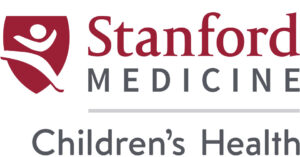Hilibrand Foundation Awards $1 Million for Autism Research
PALO ALTO – The Hilibrand Foundation has awarded a $1 million grant for the international Autism Genome Project, to be distributed under the direction of Joachim Hallmayer, MD, an associate professor of psychiatry and behavioral sciences at Stanford University School of Medicine.
The Autism Genome Project (AGP) is a public/private partnership uniting the world’s leading autism researchers in an effort to identify the genes associated with autism spectrum disorders. The grant from the Hilibrand Foundation will enable researchers in the AGP to identify meaningful common and rare genetic variants that are associated with autism spectrum disorders.
Autism spectrum disorders (ASD) are a group of developmental disabilities defined by significant impairments in social interaction and communication and the presence of unusual behaviors and interests. ASDs, which affect one out of every 150 children in the United States, are among the fastest growing neurodevelopmental disabilities today.
Hallmayer, who serves as a member of the AGP Steering Committee and the chair of the AGP Executive Committee, will distribute the funds among 14 institutions, including Stanford. Hallmayer is co-author of a just published paper in Nature Genetics which analyzed the results of Phase I of the AGP.
The Autism Genome Project (AGP) was established in 2004 by a group of leading autism geneticists with the goal of improving scientific collaboration. The AGP has assembled one of the largest genetic databases of autistic families. It includes detailed genetic data and clinical information on more than 3,500 families, which will allow researchers to more fully investigate the genetic and environmental factors associated with ASD.
“The AGP is making real progress in the understanding of the genetic underpinnings of autism,” said Hallmayer, who is leading the project at Stanford University School of Medicine. “The Hilibrand family has our deepest appreciation for their commitment to the AGP. This work is challenging — both time consuming and expensive — and without the continued support of the Hilibrands, we would not be as far along in our research efforts as we are today.”
“My husband and I are very excited about the Autism Genome Project and we hope that it leads to new breakthroughs in both autism research and the field of genetics,” said Deborah Hilibrand of The Hilibrand Foundation. “We have watched the progress being made by the AGP over the last three years, and in making this gift we want to enable researchers to take full advantage of the latest genotyping technology in their quest to find the genes associated with autism.”
The funds from the Hilibrand Foundation will support a lead group of researchers including: Joachim Hallmayer, M.D., Stanford University; Daniel Geschwind, M.D., Ph.D., University of California, Los Angeles; Gerard Schellenberg, Ph.D., University of Washington and Veterans Affairs Puget Sound Health Care System, Seattle Division; Veronica Vieland, Ph.D., The Ohio State University; Jonathan Haines, Ph.D., and James Sutcliffe, Ph.D., Vanderbilt University; Margaret Pericak-Vance, Ph.D., University of Miami; Joseph Buxbaum, Ph.D., Mount Sinai School of Medicine; William McMahon, M.D., University of Utah; Ed Cook, M.D., University of Illinois; Bernard Devlin, Ph.D., University of Pittsburgh; Stephen Scherer, Ph.D., University of Toronto; Michael Gill, M.D., Ph.D., Trinity College, Dublin, and the Irish Autism Genetics Research Collaboration; Anthony Monaco, M.D., Ph.D., University of Oxford; Astrid Vicente, Ph.D., IGulbenkian de Ciencia & Instituto Nacional de Saude; and Catalina Betancur, M.D., Ph.D., Institut National de la Santé et de la Recherche Médicale (INSERM).
About the Autism Genome Project
The Autism Genome Project is comprised of 120 genetic researchers and 50 academic institutions from throughout North America and Western Europe. The AGP brings together the Autism Genetics Cooperative (AGC), the Autism Genetics Resource Exchange (AGRE), Collaborative Programs of Excellence in Autism (CPEA), and the International Molecular Genetic Study of Autism Consortium (IMGSAC). Funding for the AGP comes from an unique combination of international, public and private partners including: Autism Speaks, the British Medical Research Council (MRC), the Health Research Board of Ireland (HRB), Genome Canada and partners, Canadian Institutes for Health Research (CIHR), Southwest Autism Research and Resource Center (SARRC), and the Hilibrand Foundation.
About Stanford University School of Medicine
Stanford University School of Medicine is a premier research-intensive medical school that improves health through leadership and a collaborative approach to discovery and innovation in patient care, education, and research. The primary goal of the School of Medicine’s research enterprise is translating fundamental discoveries into technologies, treatments and policies that improve human health.
About Packard Children’s Hospital
Packard Children’s Hospital is a non-profit, non-sectarian hospital devoted exclusively to the health care of children and pregnant women. The mission of Packard is to serve as an internationally recognized pediatric and obstetric hospital that advances family-centered care, fosters biomedical innovation, translates scientific discoveries into improved patient care, educates the next generation of pediatric healthcare providers and leaders, and advocates on behalf of children and expectant mothers.
About The Hilibrand Foundation
The Hilibrand Foundation was established by Lawrence and Deborah Hilibrand. The Hilibrands have been actively involved in supporting autism research and treatment efforts after their son was diagnosed with autism. Mrs. Hilibrand formerly served on the board of the National Alliance for Autism Research (NAAR).

